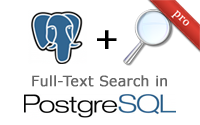Types
- Free Episodes
- Pro Episodes
- Revised Episodes
Categories
- Active Record
- Active Resource
- Active Support
- Administration
- Ajax
- APIs
- Authentication
- Authorization
- Background Jobs
- Caching
- Code Walkthrough
- Controllers
- Debugging
- Deployment
- eCommerce
- Forms
- Mailing
- Models
- Performance
- Plugins
- Production
- Rack
- Rails 2.0
- Rails 2.1
- Rails 2.2
- Rails 2.3
- Rails 3.0
- Rails 3.1
- Rails 3.2
- Rails 4.0
- Refactoring
- Routing
- Search
- Security
- Testing
- Tools
- Views
Authorization from Scratch Part 2
This finishes the series on building authorization from scratch by refactoring the permission logic into a DSL, restricting authorization with attributes, and combining with strong_parameters to protect params.
(20 minutes)
Authorization from Scratch Part 1
Authorization can be difficult to implement and test because it often involves complex logic that exists throughout the entire app. Here I demonstrate how to test and implement authorization from scratch.
(15 minutes)
Strong Parameters
The strong_parameters gem is an improvement over attr_accessible to securely handle mass assignment even when you have complex authorization logic. The functionality will likely be added to Rails 4 so it is a good idea to learn how it works.
(12 minutes)
Full-Text Search in PostgreSQL
Postgres offers full-text searching right out of the box. This episode shows how to write queries from scratch, apply tools like Texticle and pg_search, and optimize performance through indexes.
(16 minutes)
Trinidad
Trinidad is designed to serve JRuby web applications and gives you the power of Java while still keeping the feel of traditional Rails deployment. Here I show how to setup a Capistrano recipe, configure it, and more.
(15 minutes)
Hstore
With hstore you can add schema-less data to PostgreSQL. This allows you to store model attributes without creating separate database columns. Watch how to do this using the activerecord-postgres-hstore gem.
(10 minutes)
OAuth with Doorkeeper
Doorkeeper makes it easy to create an OAuth 2 provider. This episode also shows how to setup OmniAuth as an OAuth client and use the oauth2 gem to communicate with an API.
(19 minutes)
Extending Refinery CMS
Here I continue on Refinery and show how to add database-backed content by generating an engine. You will also learn how to override Refinery's views and controllers in this episode.
(14 minutes)
ElasticSearch Part 2
This final part on ElasticSearch and Tire will show how to make more complex search queries, customize the indexing, and add facets.
(16 minutes)









